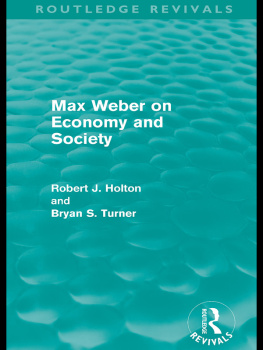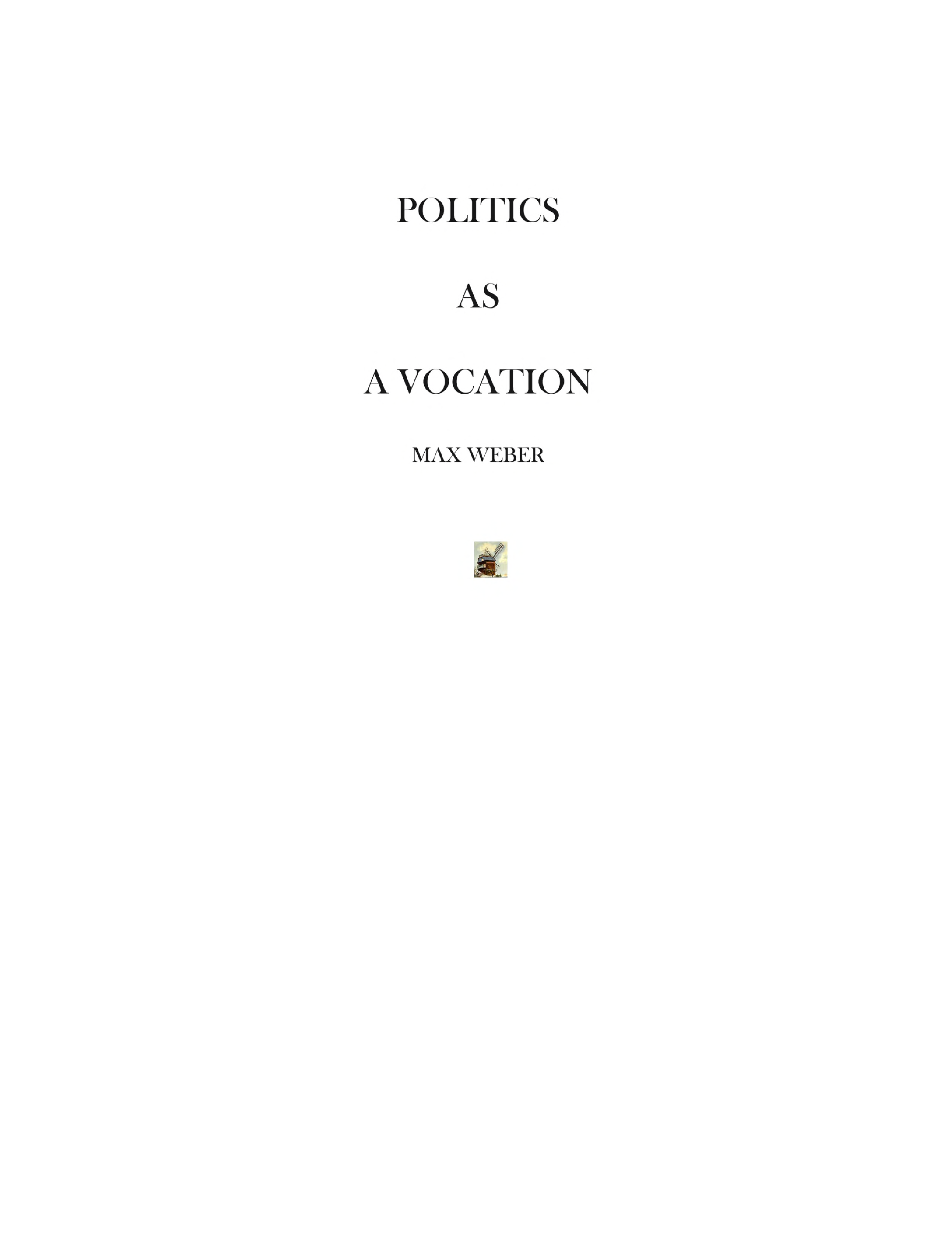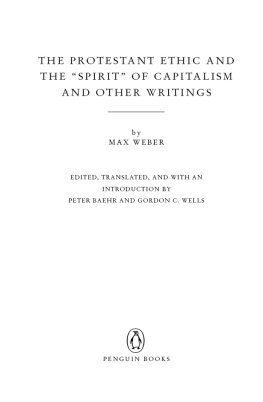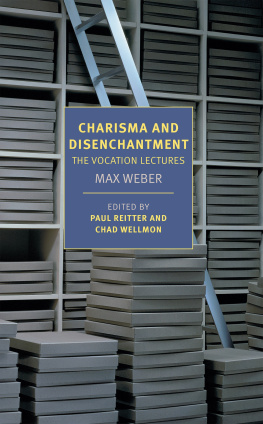From Max Weber
Max Weber is the most distinguished sociologist of modern times. He died in 1920, leaving behind him a considerable amount of material, which has been assembled in volumes of collected essays on politics, methodology, general sociology, and the sociology of religion. Now, in the volume before us, H. H. Gerth and C. Wright Mills have produced a translation of a further selection from his work, preceded by an illuminating introduction Instructive and a great intellectual pleasure. The Listener
Max Weber (18641920) was one of the most prolific and influential sociologists of the twentieth century. This classic collection draws together his key papers. This edition contains a new preface by Professor Bryan S. Turner.
Bryan S. Turner is a leading Weber scholar and contemporary sociologist. He has edited Max Weber: Critical Responses (Routledge 1999) and Max Weber on Economy and Society, with Robert Holton (Routledge 1989), and is the founding editor with John O'Neill of the Journal of Classical Sociology.
From Max Weber
Essays in Sociology
Translated, edited, with an
Introduction by H.H. Gerth
and C. Wright Mills
With a New Preface by
Bryan S. Turner
First published 2009
by Routledge
2 Park Square, Milton Park, Abingdon, Oxon OX14 4RN
Simultaneously published in the USA and Canada by Routledge
by Routledge
270 Madison Avenue, New York, NY 10016
Routledge is an imprint of the Taylor & Francis Group,
an informa business
2009 H.H. Gerth and C. Wright Mills for selection Preface Bryan Turner
Printed and bound in Great Britain by
CPI Antony Rowe, Chippenham, Wiltshire
All rights reserved. No part of this book may be reprinted or reproduced or utilised in any form or by any electronic, mechanical, or other means, now known or hereafter invented, including photocopying and recording, or in any information storage or retrieval system, without permission in writing from the publishers.
British Library Cataloguing in Publication Data
A catalogue record for this book is available from the British Library
Library of Congress Cataloging-in-Publication Data
Weber, Max, 18641920.
[Selected works. English]
From Max Weber : essays in sociology / edited, with an introduction by
H. H. Gerth and C. Wright Mills with a new preface by Bryan S. Turner.
p. cm. (Routledge classics in sociology)
1. Social sciences. I. Gerth, Hans Heinrich, 19081979. II. Mills, C.
Wright (Charles Wright), 19161962. III. Title.
H33.W3613 2009
301dc22
2008034087
ISBN: 978-0-203-45219-6 (ebk)
ISBN: 978-0-415-48269-1 (hbk)
Table of Contents
Preface
ONE HUNDRED AND FIFTY YEARS AGO A. F. Tytler set forth three Principles of Translation: To give a complete transcript of the original ideas; to imitate the styles of the original author; and to preserve the ease of the original text. In presenting selections from Max Weber to an English-reading public, we hope we have met the first demand, that of faithfulness to the original meaning. The second and the third demands are often disputable in translating German into English, and, in the case of Max Weber, they are quite debatable.
The genius of the German language has allowed for a twofold stylistic tradition. One tradition corresponds to the drift of English towards brief and grammatically lucid sentences. Such sentences carry transparent trains of thought in which first things stand first. Friedrich Nietzsche, Georg Christoph Lichtenberg, and Franz Kafka are eminent among the representatives of this tradition.
The other tradition is foreign to the tendency of modern English. It is often felt to be formidable and forbidding, as readers of Hegel and Jean Paul Richter, of Karl Marx and Ferdinand Tnnies may testify.
It would hardly do to classify the two traditions as good and bad. Authors representing the first believe in addressing themselves to the ear; they wish to write as if they were speaking. The second group address themselves to the eye of the silent reader. Their texts cannot easily be read aloud to others; everyone has to read for himself. Max Weber once compared German literary humanism to the education of the Chinese Mandarin; and Jean Paul Richter, one of the greatest of German writers, asserted that a long period bespeaks of greater deference for the reader than do twenty short sentences. In the end the reader must make them over into one by rereading and ecapitulation. The writer is no speaker and the reader is no listener
It is obvious that this school of writing is not what it is because of the inability of its practitioners to write well. They simply follow an altogether different style. They use parentheses, qualifying clauses, inversions, and complex rhythmic devices in their polyphonous sentences. Ideas are synchronized rather than serialized. At their best, they erect a grammatical artifice in which mental balconies and watch towers, as well as bridges and recesses, decorate the main structure. Their sentences are gothic castles. And Max Weber's style is definitely in their tradition.
Unfortunately, in his case this style is further complicated by a tendency to Platonize thought: he has a predilection for nouns and participles linked by the economic yet colorless forms of weak verbs, such as to be, to have, or to seem. This Platonizing tendency is one of Weber's tributes to German philosophy and jurisprudence, to the style of the pulpit and the bureaucratic office.
We have therefore violated the second of Tytler's rules for translators. Although we have been eager to retain Weber's images, his objectivity, and of course his terms, we have not hesitated to break his sentence into three or four smaller units. Certain alterations in tense, which in English would seem illogical and arbitrary, have been eliminated; occasionally the subjunctive has been changed into the indicative, and nouns into verbs; appositional clauses and parentheses have been raised to the level of equality and condemned to follow rather than herald the main idea. As Weber has not observed Friedrich Nietzsche's suggestion that one should write German with an eye to ease of translation, we have had to drive many a wedge into the structure of his sentences. In all these matters, we have tried to proceed with respect and measure.
But we have also broken the third rule: Whatever ease Weber may have in English is an ease of the English prose into which he is rendered and not any ease of the original work.
A translator of Weber faces a further difficulty. Weber frequently betrays a self-conscious hesitancy in the use of loaded words such as democracy, the people, environment, adjustment, etc., by a profuse utilization of quotation marks. It would be altogether wrong to translate them by the addition of an ironical so-called. Moreover, Weber often emphasizes words and phrases; the German printing convention allows for this more readily than does the English. Our translation, in the main, conforms to the English convention: we have omitted what to the English reader would seem self-conscious reservation and manner of emphasis. The same holds for the accumulation of qualifying words, with which the English language dispenses without losing in exactitude, emphasis, and meaning.
Weber pushes German academic tradition to its extremes. His major theme often seems to be lost in a wealth of footnoted digressions, exemptions, and comparative illustrations. We have taken some footnotes into the text and in a few instances we have relegated technical cross-references which stand in the original text to footnotes.











